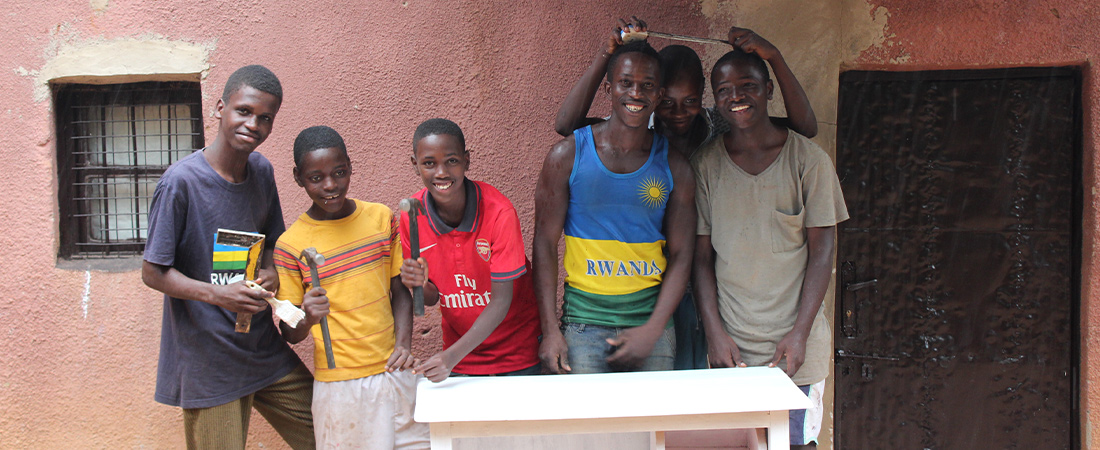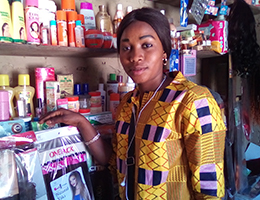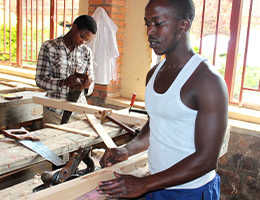More Than Business as Usual for Youth Entrepreneurs

A young entrepreneur in Senegal, Aminata Sonko is determined to create stability for herself and those around her in the post-conflict economic recovery underway in Casamance, Senegal.
Like more than 22% of her female peers, Sonko’s education was interrupted by an early pregnancy. But, unlike most, she re-enrolled to finish her secondary education.
“I grew up in a family where no one had steady work,” Sonko says. “There were few to no available jobs in my region. I knew I had to go back to school after I had my child if I was ever going to become independent and find work and change these patterns in the community.”
Intl-Youth-Day-3.jpg

Today, like Casamance, communities around the world face complex social and economic challenges as a result of globalization, shifting demographics, technological innovation, climate change, and resource scarcity. The COVID-19 pandemic only exacerbates these difficult realities. Against this backdrop, 22% of all youth ages 15–24 are unemployed, with little to no education or training. Only 6 out of 10 young people worldwide complete a secondary education.
Despite this, there is room for hope. In sub-Saharan Africa, 60% of young people are likely to consider starting their own business, even with the existing financial and regulatory constraints.
Sonko knew just going back to school would not be enough, so she enrolled in a technical and vocational education and training school supported by the Mastercard Foundation’s APTE-Senegal program.
“I learned so many important things about communication, leadership, and how to develop and manage a business plan,” Sonko says. “I needed more than an education and a dream. I needed skills and the self-esteem to engage with my community, to help not just myself, but others as well.
It’s now been a little over a year since Sonko opened her cosmetic and hair boutique. During school vacations, she invites three to four girls from nearby villages to work with her.
“I am able to not just provide products to the community, but I also help young girls become interested in business and show them how to use their math and communication skills,” Sonko says. “I teach them what I can.”
Pathways to a brighter future
The United Nations estimates there are upward of 150 million street children in the world today as a result of family separation, conflict, violence, abuse, disease, or poverty. By participating in programs such as APTE-Senegal, they can find ways to support themselves and their families.
“We need to continue to support youth-led entrepreneurship, especially during and after COVID-19” says EDC’s Melanie Sany. “It offers more than ‘just a job’—it’s an essential pathway to individual dignity, community stability, cohesion, and development.”
Intl-Youth-Day-2020-2.jpg

In Rwanda, half a continent away from Aminata Sonko, Abubakar Ishimwe operates a modest carpentry workshop in Kigali on the same street he lived on for eight years as a child. Like many street children, Ishimwe dropped out of school at 16 years old and never pursued any formal training. But in 2017, while still living on the streets, he heard about the USAID-funded Huguka Dukore Akazi Kanoze project, which provides practical work readiness skills and entrepreneurship training for youth. He asked if he could participate.
“As I went through the training program, though, and had the opportunity and space to practice, I became more and more confident that I would be able to find a new and better life,” says Ishimwe. “The skills and mentorship I received encouraged me to start my own proper carpentry business. My work enables me to pay my rent, cover all of my living expenses, and save for the future.”
But Ishimwe’s business goes beyond his own survival and successes. His workshop has become a safe space for street children from the neighborhood to be seen and heard, to be respected and to respect others, and to learn basic carpentry skills.
“I know life on the streets,” Ishimwe says. “I feel what these children are struggling with—no one to help, no options for something better.”
For youth like Sonko and Ishimwe, entrepreneurship is more than survival or a second chance. It is an open, accessible door through which they can gain relevant skills and master key competencies.
Says Ishimwe, “I was given the chance to make something positive of my life. I have the skills now to put a foundation under my feet and a roof over my head. In doing so, I must use all of that to help other youth find a better way forward, so they will engage in positive ways with the world.”